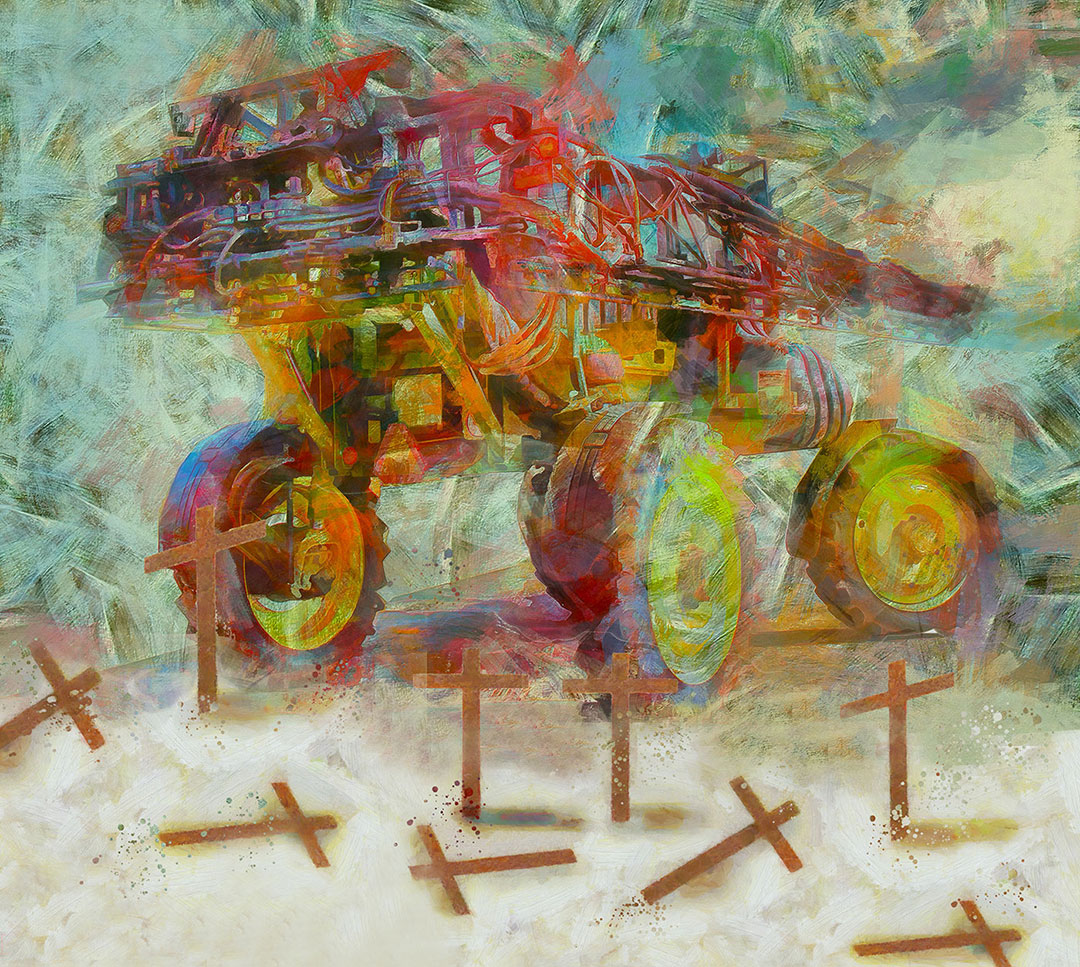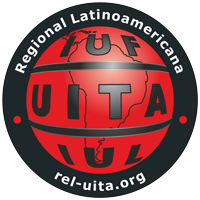The case of Julio de los Santos
Julio de los Santos, a Uruguayan rural worker who for years has been practically bedridden and has seen all paths to justice blocked by his country’s courts, has now been given reason to hope, as the Inter-American Commission on Human Rights (IACHR) is moving forward with his case, which could potentially be brought before the Inter-American Court of Human Rights.
Daniel Gatti
6 | 5 | 2024

Image: Allan McDonald | Rel UITA
It has been several years since Julio began seeking reparation for the serious damage caused to his health by the constant exposure to toxic agrochemicals that he was forced to withstand during the 384 days that he worked for Arrozal 33. This rice production company acts as overlord of a locality in the Uruguayan department of Treinta y Tres, taking advantage of its position as the virtually sole employer of a population whose economy is dependent on that crop.
The company was in gross violation of the occupational health and safety standards it is legally bound to comply.
During his time working for the company—on whose estate he also lived, along with many other workers—de los Santos had to handle drums filled with toxic agrochemical residues, including glyphosate, without proper protective wear.
He once spent a whole working day soaking wet, covered with a sticky, foul-smelling liquid, without being allowed to take a break to change into dry clothes.
After some time, he inevitably fell ill, gradually becoming sicker and sicker, under the neglectful watch of Arrozal 33 management.
He eventually decided to bring legal action against his employer, a company hailed as a “productive icon of Uruguay” by press media linked to economic interests, and belonging to a sector that enjoys the favors of Uruguayan President Luis Lacalle Pou.
When he filed the lawsuit, Julio was already dependent on a respirator and a daily regimen consisting of numerous medications.
During the trial, the Social Security Agency (Banco de Previsión Social) declared that his disability was absolute, placing it at almost 90 percent, a level of disability that prevents him from ever working again for the rest of his life. He is barely in his fifties.
After three years of difficult battles in court, in 2021 his lawyer Santiago Mirande secured a miracle: a judge sentenced Arrozal 33 to pay Julio some 220,000 dollars for “moral damages,” “consequential damages” and “loss of earnings,” due to exposure to “contaminants of an agrochemical or biological nature,” as certified by experts.It was a historic ruling in Uruguay’s justice system, the first case ever in which a rural worker was compensated for contamination by toxic agrochemicals.
But the victory was short-lived. Just two months later, an appeals court, acting with remarkable speed, overturned the decision, putting a smile back on the faces of the owners of Arrozal 33.
Based solely on the evidence submitted by the company, and thus ignoring the independent medical expert reports, the second instance ruling is a compendium of arbitrariness and procedural errors.Peor aún: fue convalidado, a fines de 2022, por la Suprema Corte de Justicia (SCJ). En palabras del abogado: “Es muy grave la señal que da el ámbito mayor de justicia uruguayo. Desatendió los tres peritajes médicos. Entonces, ¿vale más la opinión médica de un juez que la de un médico?”.
To make matters, the judgment was ratified in late 2022 by the Supreme Court of Justice (SCJ). In the words of de los Santos’s legal representative: “The message that Uruguay’s highest court is giving is very concerning. It disregarded three medical expert opinions. Is a judge’s medical opinion then worth more than the opinion of a doctor?”
Mirande also highlights that the judgment is vitiated by errors in the application of procedural rules and, ultimately, results in a loss of guarantees and predictability for all citizens. “In short, it is a decision typical of a medieval Court”.
La Rel, which had been covering every development in this case because of its implications for rural workers everywhere, reported this ruling under the title “The Supreme Court of the food factory”.
With all paths to justice blocked in Uruguay, Mirande turned to the IACHR.
“The Commission does not admit every petition filed. And often, when the accused states reply, it accepts the arguments given and files the cases away. That has not happened so far in this case,” Mirande told La Rel.
The lawyer is hopeful that the IACHR, which has shown concern for many Latin American rural workers who are victims of situations similar to de los Santos’s, will eventually present the case to the Inter-American Court of Human Rights (IAHR Court).
That is still some time away, but the celerity with which the Commission has moved forward in this instance (considering that when it received Julio’s case in February 2023 it was still examining petitions from 2014) is encouraging with respect to what the Commission will do.Meanwhile, de los Santos’s wife, Silvia, is showing symptoms similar to those of her husband.
There are other workers who have been contaminated at Arrozal 33. But they are wary of coming forward and reporting their situation.
They are scared and prefer to wait and see what happens with Julio’s case, before they decide what to do.
That is also why this process is so important, Mirande stressed. So that, for once, fear will change sides.
